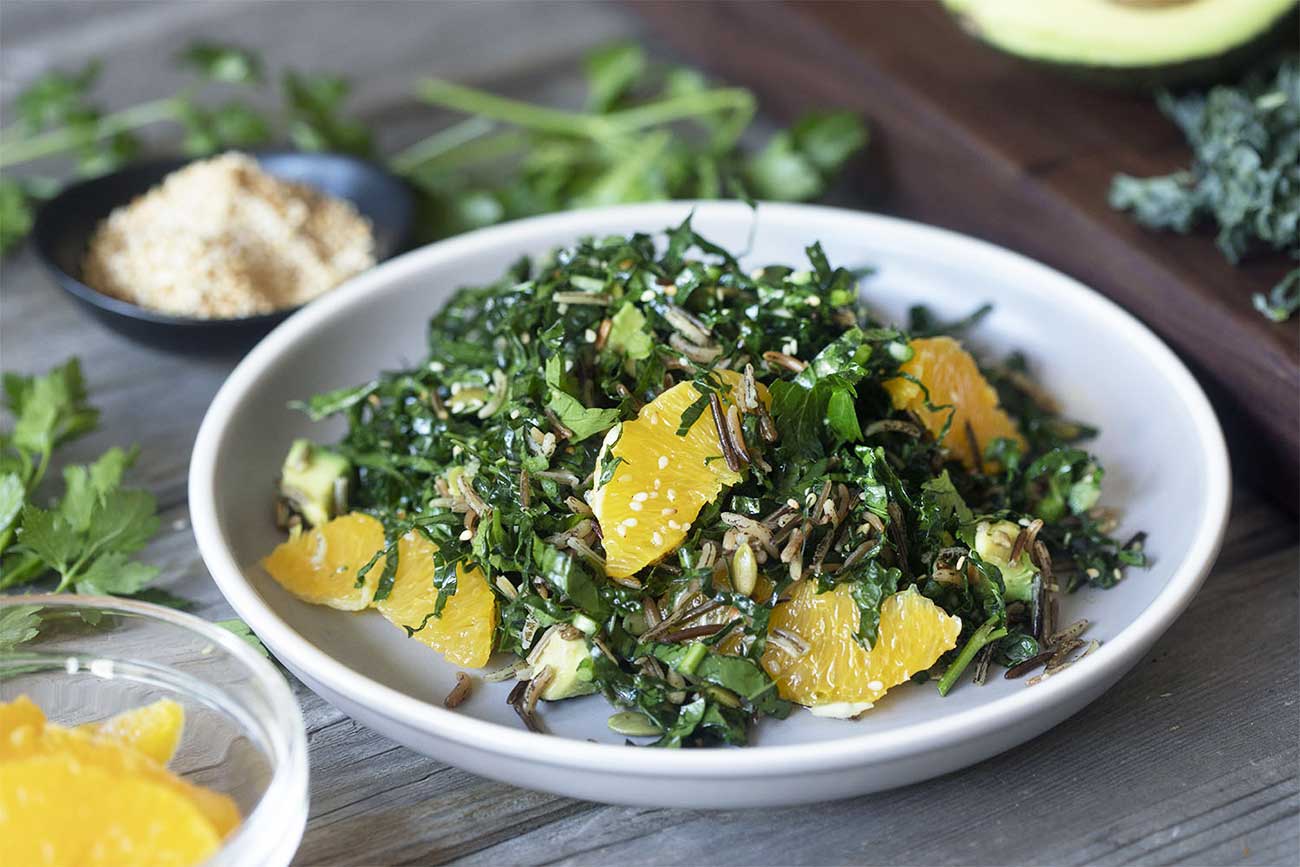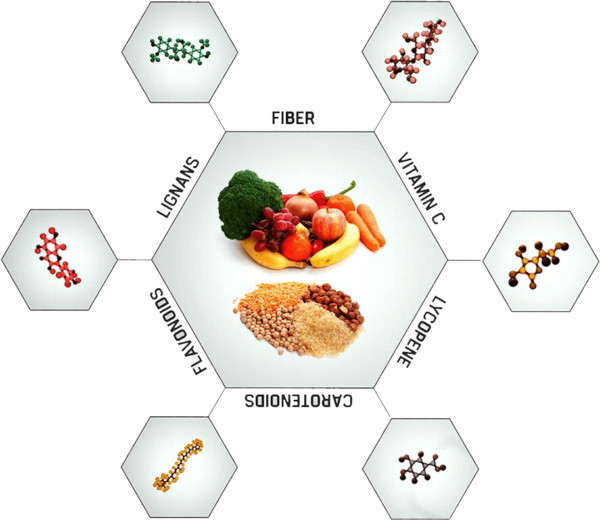

December 21, 2019

It’s easy to get all the nutrients we need to thrive eating a plant-based diet. Plant-based diets are typically higher in quality than diets that include meat (1) and include more fiber, vitamins C and E, folate, magnesium, and copper, and other nutrients (2). That said, making sure we’re getting key nutrients like vitamins B12 and D, calcium, iodine, iron, selenium, and omega-3 fatty acids is well worth the effort. For a breakdown of these important nutrients and ways to include them in your diet, we turn to the recommendations of Michael Greger M.D., FACLM, founder of NutritionFacts.org and Scientific Consultant to The Game Changers (3).
As discussed in The Game Changers, up to 39% of people, including meat eaters, are low in Vitamin B12 (4). The good news is that it’s very easy to get enough, and Dr. Greger has several recommendations for how to do this. His professional opinion is that:
the easiest and most inexpensive way to get one’s B12 is to take at least 2,000 mcg (µg) of cyanocobalamin once each week, ideally as a chewable, sublingual, or liquid supplement (you can’t take too much–all you get is expensive pee). (5)
Anyone who’d rather supplement daily can take 50 mcg cyanocobalamin per day and people over the age of 65 should take at least 1000 mcg cyanocobalamin once per day (3).
Note that many foods are B12-fortified, and range from exotic foods like nutritional yeast to drinks as simple as soy milk. While it’s certainly possible to get enough B12 with frequent servings of fortified foods and beverages, it seems simpler to just take a supplement.
Most people meet at least some of their vitamin D needs from sunlight (6) but since factors like time of day, season, latitude, air pollution, and sunscreen affect our ability to make it, supplementing is often needed to get enough (7).
If getting vitamin D through sun exposure is inadequate or unreliable, Dr. Greger recommends getting 2,000 IU of vitamin D3 per day (3).
While the dairy industry has done a great job convincing people that their products are the only viable way to get enough calcium, there’s nothing special about the calcium in cow’s milk. Fortified soy milk, for example, has a comparable amount of calcium and is absorbed just as effectively (8). And the calcium in low-oxalate vegetables such as broccoli, kale, and bok choy is actually 15-30% more absorbable than the calcium in cow’s milk (9). This is why Dr. Greger recommends getting:
At least 600 mg of calcium daily via calcium-rich plant foods, preferably low-oxalate dark green leafy vegetables, which include all greens except spinach, chard, and beet greens (all very healthy foods, but not good calcium sources due to their oxalate content) (3).
Sea vegetables like nori, kombu, and wakame are excellent sources of iodine (10). Dr. Greger cautions against kelp (because it has too much iodine) and hijiki (because of its high arsenic levels) and suggests that people who don’t like seaweed or use iodized salt supplement with 150 mcg of iodine per day (3).
A healthy plant-based diet includes multiple sources of iron including beans, lentils, tofu, spinach, and cashews. Dr. Greger recommends that:
All menstruating women, whether they’re plant-based or not, should boost iron absorption by combining iron-rich foods and vitamin C at meals, and get checked for iron-deficiency anemia every few years. For men, he recommends they getting checked for an iron overload disease before any attempt to increase intake (3).
According to Dr. Greger, northern Europeans may need to take a supplement or eat a daily Brazil nut (3).
When most people think of omega-3 fatty acids, they tend to think of fish or fish oil. But like other animal protein, fish are just the middlemen, getting their omegas from the algae they eat. Given that fish, and even distilled fish oil, have been found to contain toxic industrial pollutants, it’s a better plan to rely on plants for your omega-3s. Besides, according to Dr. Greger, even most fish-eaters aren’t getting enough DHA for optimal health. Therefore:
In addition to eating omega-3-rich whole foods every day (like walnuts, ground flaxseeds, and ground chia seeds),Dr. Greger recommends that everyone consider taking 250 mg daily of pollutant-free (yeast or algae-derived) long-chain omega-3s.
This is especially important for older men as well as women who are expecting, breastfeeding, or even thinking about getting pregnant.
TIP – For extra assurance, use the free Cronometer app to track three days of meals and drinks (two weekdays and one weekend day) to see which nutrients you’re getting plenty of and which ones could use more attention.
References:
(1) Parker HW, Vadiveloo MK. Diet quality of vegetarian diets compared with nonvegetarian diets: a systematic review. Nutr Rev. 2019 Mar 1;77(3):144-160.
(2) Sobiecki JG, Appleby PN, Bradbury KE, Key TJ. High compliance with dietary recommendations in a cohort of meat eaters, fish eaters, vegetarians, and vegans: results from the European Prospective Investigation into Cancer and Nutrition-Oxford study. Nutr Res. 2016;36(5):464–477.
(3) Greger M. Optimum nutrition recommendations. 2011 Sept 12, Updated 2019.
(4) Tucker KL, Rich S, Rosenberg I, Jacques P, Dallal G, Wilson PW, Selhub J. Plasma vitamin B-12 concentrations relate to intake source in the Framingham Offspring study. Am J Clin Nutr. 2000 Feb;71(2):514-22.
(5) Greger M. Vitamin B12: how much, how often? 2011 Aug 30.
(6) National Institutes of Health, Office of Dietary Supplements. Vitamin D: Fact sheet for health professionals.
(7) Melina V, Craig W, Levin S. Position of the Academy of Nutrition and Dietetics: Vegetarian Diets. J Acad Nutr Diet. 2016 Dec;116(12):1970-1980.
(8) Tang AL, Walker KZ, Wilcox G, Strauss BJ, Ashton JF, Stojanovska L. Calcium absorption in Australian osteopenic post-menopausal women: an acute comparative study of fortified soymilk to cows’ milk. Asia Pac J Clin Nutr. 2010;19(2):243-9.
(9) Weaver CM, Proulx WR, Heaney R. Choices for achieving adequate dietary calcium with a vegetarian diet. Am J Clin Nutr. 1999 Sep;70(3 Suppl):543S-8S.
(10) National Institutes of Health, Office of Dietary Supplements. Iodine: Fact sheet for health professionals.

How Much Protein Do You Need?
Protein is one of the main building blocks of the body, helping us grow and repair tissue, while also helping our hormone and immune systems function properly. Important as it […]
More Details
6 Ways To Get Started on a Plant-Based Diet
When it comes to making food choices, everyone has their own goals and their own rate of change. Some people cut out animal products entirely, while others start by including […]
More Details
The Ultimate Plant-Based Thanksgiving Recipes
Whether you’re planning a fully plant-based Thanksgiving dinner or just want to bring a delicious plant-based dish or two to impress your family and friends, we’ve curated a list of […]
More Details